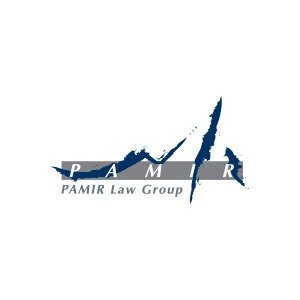Best Merger & Acquisition Lawyers in Taiwan
Share your needs with us, get contacted by law firms.
Free. Takes 2 min.
Or refine your search by selecting a city:
List of the best lawyers in Taiwan
About Merger & Acquisition Law in Taiwan
The field of Merger & Acquisition (M&A) in Taiwan is governed by an intricate set of laws designed to facilitate corporate consolidation while safeguarding market competitiveness. M&A activities involve the transfer, consolidation, or amalgamation of businesses, ownership, or management, and these activities are regulated by the Company Act, Fair Trade Act, Securities and Exchange Act, and Business Mergers and Acquisitions Act. These laws ensure that any such transactions conform to Taiwan's legal, economic, and corporate governance standards, providing a stable environment for businesses to grow and collaborate.
Why You May Need a Lawyer
Legal assistance is often crucial in M&A transactions due to their complexity and high stakes. Here are common situations necessitating legal help:
- Due Diligence: Conducting thorough reviews of the financial, legal, and operational aspects of the target company to avoid unforeseen liabilities.
- Negotiations: Assisting in contract negotiations to ensure favorable terms and conditions in the transaction agreement.
- Regulatory Compliance: Ensuring the transaction adheres to local regulatory requirements and obtaining necessary government approvals.
- Structuring Transactions: Advising on the optimal structure for the transaction to maximize tax efficiencies and compliance.
- Dispute Resolution: Handling conflicts or disputes that might arise during or post the transaction.
Local Laws Overview
Several key aspects of Taiwan’s legal framework are particularly relevant to M&A:
- Company Act: This act defines the legal structures, shareholder rights, and procedures for mergers, requiring majority shareholder approval for such activities.
- Fair Trade Act: Governs anti-trust considerations, ensuring that mergers do not lessen market competition or create monopolistic conditions.
- Securities and Exchange Act: Regulates the securities aspect of public companies involved in M&A transactions, including disclosure requirements and insider trading policies.
- Business Mergers and Acquisitions Act: Provides the provisions specifically concerning mergers, statutory consolidations, and stock share-swapping processes.
Frequently Asked Questions
What constitutes a merger or acquisition in Taiwan?
A merger occurs when two companies combine to form a new entity or one absorbs the other. An acquisition involves one company taking over another's asset, stock, or interests.
What are the typical steps involved in an M&A transaction?
The key steps usually include preliminary assessment, due diligence, valuation, negotiation, preparing definitive agreements, and closing.
Are foreign companies allowed to acquire Taiwanese companies?
Yes, foreign entities can acquire local companies, but they must comply with Taiwan's regulatory framework and may require approvals from relevant authorities.
What are the tax implications of M&A in Taiwan?
M&A transactions may involve capital gains taxes, transfer taxes, and other fiscal considerations depending on the transaction structure.
How is a fair business valuation determined?
Valuations typically consider asset appraisals, comparable company analyses, and discounted cash flow methodologies.
What should be included in a due diligence process?
Due diligence covers legal compliance, financial records, tax status, intellectual property, customer contracts, and liabilities.
Can an M&A transaction be reversed?
Reversing an M&A is complex but possible, generally requiring legal intervention and mutual consent if unforeseen issues arise.
What role does intellectual property play in M&A?
If intellectual property is a significant asset, it needs thorough evaluation in terms of ownership, rights, and valuation.
How long does an M&A transaction take?
Depending on the complexity, transactions can take between six months to over a year to complete once negotiations commence.
What are the risks involved in M&A?
Risks include integration challenges, cultural mismatches, undisclosed liabilities, and regulatory compliance issues.
Additional Resources
For those seeking more information on M&A in Taiwan, the following resources can be beneficial:
- Taiwan Ministry of Economic Affairs
- Department of Investment Services
- Taipei Bar Association
- Business Mergers and Acquisitions Association of Taiwan
- Online legal databases with Taiwan legislation
Next Steps
If you find yourself in need of legal assistance for M&A transactions in Taiwan, here are the suggested next steps:
- Identify Requirements: Clearly define what you need assistance with, such as due diligence, negotiation support, or compliance advice.
- Research and Select a Lawyer: Look for experienced M&A lawyers or law firms familiar with Taiwan's regulatory landscape.
- Initial Consultation: Schedule a consultation to discuss your needs and evaluate the attorney's expertise and approach.
- Engagement Agreement: Enter into an agreement detailing the scope of work, fees, and terms of engagement.
- Continuous Collaboration: Maintain open communication with your legal advisor throughout the transaction process to ensure all aspects are properly managed.
Lawzana helps you find the best lawyers and law firms in Taiwan through a curated and pre-screened list of qualified legal professionals. Our platform offers rankings and detailed profiles of attorneys and law firms, allowing you to compare based on practice areas, including Merger & Acquisition, experience, and client feedback.
Each profile includes a description of the firm's areas of practice, client reviews, team members and partners, year of establishment, spoken languages, office locations, contact information, social media presence, and any published articles or resources. Most firms on our platform speak English and are experienced in both local and international legal matters.
Get a quote from top-rated law firms in Taiwan — quickly, securely, and without unnecessary hassle.
Disclaimer:
The information provided on this page is for general informational purposes only and does not constitute legal advice. While we strive to ensure the accuracy and relevance of the content, legal information may change over time, and interpretations of the law can vary. You should always consult with a qualified legal professional for advice specific to your situation.
We disclaim all liability for actions taken or not taken based on the content of this page. If you believe any information is incorrect or outdated, please contact us, and we will review and update it where appropriate.
Browse merger & acquisition law firms by city in Taiwan
Refine your search by selecting a city.
















